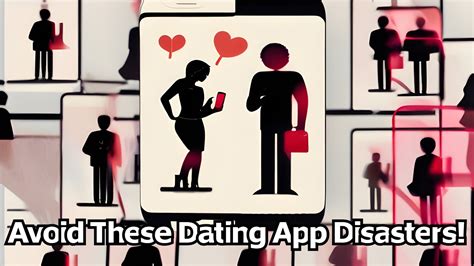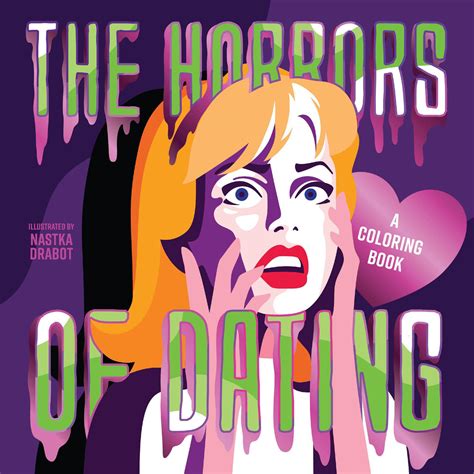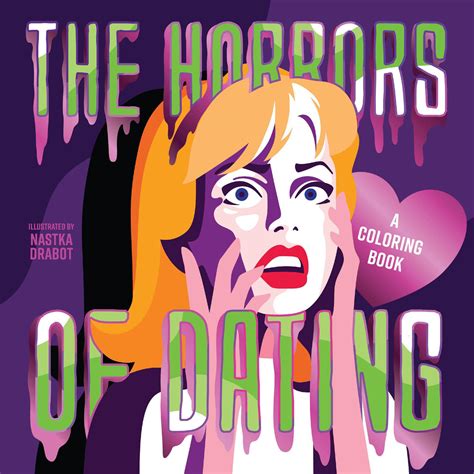
Dismal dates are sparking a debate: Should egregious dating app experiences warrant compensation or even apologies? A viral social media discussion, fueled by shared horror stories, explores the ethical and potentially legal implications of truly terrible dates facilitated by dating apps.
Online dating, while offering a convenient pathway to connection, also presents a minefield of potential misrepresentations and disappointing encounters. Some users are now questioning whether dating apps bear some responsibility for the experiences they facilitate, particularly when those experiences involve significant emotional distress, financial loss, or even safety concerns. The conversation, ignited by widespread sharing of disastrous date stories, raises complex questions about accountability, user expectations, and the boundaries of acceptable behavior in the digital dating landscape. Many are asking whether the current system places undue burden on individuals to vet potential partners and absorb the fallout from intentionally deceptive or harmful behavior.
“I think there should be an option to report dates for being different than their profile. Not just scamming, but also false advertising,” one user posted, reflecting a common sentiment. This call for enhanced accountability highlights a growing frustration with the often superficial and misleading nature of online profiles. The debate extends beyond simple dissatisfaction; some users recount experiences involving catfishing, financial manipulation, or even situations that escalated into harassment or potential danger. These extreme cases prompt the question of whether dating apps should implement stricter verification processes, offer resources for users who experience negative encounters, or even develop mechanisms for reporting and addressing harmful behavior.
The discussion also touches on the broader issue of online etiquette and the expectations individuals bring to the dating app experience. While some argue that bad dates are simply an unavoidable part of the process, others contend that certain behaviors cross a line, warranting an apology or even some form of restitution. “If someone lies about their age, marital status, or intentions, and it leads to significant emotional or financial harm, is it unreasonable to expect some form of accountability?” asks one online commentator.
The debate is complex, encompassing issues of personal responsibility, platform accountability, and the evolving social norms of online dating. As dating apps continue to play a dominant role in modern romance, the conversation about user safety, ethical behavior, and the potential for compensation or apologies for truly disastrous dates is likely to intensify.
The impetus behind this growing sentiment stems from a collective sharing of exceptionally poor dating experiences. These anecdotes, ranging from the humorous to the harrowing, paint a picture of a dating landscape riddled with dishonesty, mismatched expectations, and, in some cases, outright harmful behavior. One user recounted a date where their companion spent the entire evening berating them for their career choices, while another shared a story of being taken to a restaurant where the date openly admitted they couldn’t afford to pay. More seriously, some users described instances of being catfished, subjected to unwanted advances, or even left stranded in unfamiliar locations.
These stories, amplified by social media, have fueled a sense of collective outrage and a demand for greater responsibility from dating apps. While the platforms typically disclaim liability for user interactions, some argue that they have a moral and potentially legal obligation to protect users from harm. “Dating apps profit from connecting people, but they often fail to provide adequate safeguards against deception and abuse,” argues one online advocate. “They need to do more to verify user identities, monitor for red flags, and offer support to those who experience negative encounters.”
The specific types of dating disasters prompting calls for compensation or apologies vary widely, but several common themes emerge:
-
Catfishing and Misrepresentation: This involves creating a profile that significantly misrepresents one’s appearance, age, profession, or intentions. Examples include using old or heavily filtered photos, lying about marital status, or fabricating accomplishments.
-
Financial Manipulation: This includes dates who attempt to pressure their companions into paying for expenses they cannot afford, borrow money with no intention of repaying, or engage in other forms of financial exploitation.
-
Verbal Abuse and Harassment: This encompasses dates who engage in offensive or belittling behavior, make unwanted advances, or create a hostile or uncomfortable environment.
-
“Bait and Switch” Scenarios: This involves luring a date under false pretenses, such as promising a romantic evening but then revealing ulterior motives or a lack of interest in a genuine connection.
-
Safety Concerns: This includes dates who behave in a way that makes their companions feel unsafe, such as driving recklessly, exhibiting signs of intoxication, or making threats.
The legal implications of these types of dating disasters are complex and largely untested. While it is unlikely that a user could successfully sue a dating app for a simple bad date, there may be grounds for legal action in cases involving fraud, misrepresentation, or negligence. For example, if a dating app fails to adequately screen users with a history of violent behavior, it could potentially be held liable for harm caused to another user. Similarly, if a dating app knowingly allows users to create fraudulent profiles for the purpose of financial gain, it could face legal consequences.
However, establishing liability in these cases is often difficult, as dating apps typically argue that they are merely providing a platform for users to connect and are not responsible for their individual actions. They also rely on disclaimers and terms of service that limit their liability for user interactions.
Despite the legal challenges, the growing demand for accountability highlights a shift in public perception. Users are increasingly viewing dating apps not simply as neutral platforms, but as active participants in the dating process with a responsibility to ensure user safety and ethical behavior. This shift in perception could eventually lead to changes in the legal landscape, with courts potentially holding dating apps to a higher standard of care.
In the meantime, users are encouraged to take precautions to protect themselves from dating disasters. These precautions include:
-
Verifying user identities: Use reverse image searches and other online tools to verify the authenticity of profile photos.
-
Meeting in public places: Avoid meeting dates at their homes or other private locations for the first few encounters.
-
Informing a friend or family member: Let someone know where you are going and who you are meeting.
-
Trusting your instincts: If something feels off, don’t hesitate to end the date and leave.
-
Reporting suspicious behavior: Report any instances of catfishing, harassment, or other harmful behavior to the dating app.
The debate over compensation and apologies for dating app disasters is likely to continue as long as online dating remains a prevalent part of modern society. As technology evolves and social norms change, dating apps will need to adapt to meet the evolving expectations of their users. This may involve implementing stricter verification processes, offering better support for users who experience negative encounters, and taking a more proactive role in promoting ethical behavior. Whether or not these changes will ultimately lead to a system of compensation or apologies for truly disastrous dates remains to be seen, but the conversation itself is a sign that the dating landscape is evolving and that users are demanding greater accountability.
The underlying issue stems from the inherent vulnerabilities present in online interactions. The anonymity and distance afforded by digital platforms can embolden individuals to engage in behaviors they might not otherwise exhibit in person. Furthermore, the curated nature of online profiles often creates unrealistic expectations, leading to disappointment and frustration when the reality of a date fails to match the idealized image presented online.
“People present highly edited versions of themselves online,” explains Dr. Sarah Miller, a relationship psychologist. “This can create a disconnect between the online persona and the actual person, leading to disappointment and feelings of betrayal when the truth is revealed.”
The pressure to present a perfect image can also contribute to dishonest behavior. Some users may exaggerate their accomplishments, lie about their age or appearance, or conceal important aspects of their lives in an attempt to attract more attention. While these misrepresentations may seem harmless on the surface, they can have significant consequences for the people who are affected by them.
In addition to the issue of misrepresentation, online dating also presents challenges in terms of safety and security. While most dating app users are genuine and well-intentioned, there are also individuals who use these platforms to prey on vulnerable people. These predators may engage in catfishing, financial scams, or even physical assault.
Dating apps have taken steps to address these issues, such as implementing verification processes and providing users with tools to report suspicious behavior. However, these measures are not always effective, and many users continue to be victimized by online dating scams and abuse.
The question of whether dating apps should be held responsible for the actions of their users is a complex one. On the one hand, dating apps are merely providing a platform for people to connect, and they cannot be held responsible for the individual choices that users make. On the other hand, dating apps have a moral and potentially legal obligation to protect their users from harm.
Some legal experts argue that dating apps could be held liable for negligence if they fail to take reasonable steps to protect their users from foreseeable harm. For example, if a dating app knows that a user has a history of violent behavior and fails to warn other users about this risk, the app could potentially be held liable if that user commits an act of violence against another user.
However, establishing liability in these cases is often difficult, as dating apps typically argue that they are protected by the Communications Decency Act, which shields online platforms from liability for content posted by their users.
Despite the legal challenges, the debate over dating app accountability is likely to continue. As online dating becomes increasingly prevalent, users are demanding greater protection from scams, abuse, and other forms of online harm. This demand could eventually lead to changes in the legal landscape, with courts potentially holding dating apps to a higher standard of care.
Furthermore, the sharing of disastrous dating stories serves as a cautionary tale, reminding users to exercise caution and common sense when interacting with strangers online. It also highlights the importance of setting realistic expectations and being prepared for the possibility that a date may not live up to one’s hopes.
The evolution of dating apps themselves is also a factor in this discussion. Early dating sites often focused on matching users based on detailed profiles and personality assessments. More recent apps, however, prioritize speed and convenience, often relying on superficial factors such as photos and brief bios. This shift has arguably contributed to a decline in the quality of interactions and an increase in the likelihood of encountering dishonest or incompatible individuals.
The pressure to constantly swipe and match with new people can also lead to a sense of disposability, where users are less invested in building genuine connections and more likely to move on to the next potential date if things don’t immediately click. This can create a culture of superficiality and a lack of accountability, where users feel less obligated to treat their dates with respect and consideration.
In response to these concerns, some dating apps are experimenting with new features designed to promote more authentic and meaningful interactions. These features include video profiles, which allow users to showcase their personality and communication style; verified profiles, which help to ensure that users are who they say they are; and more robust reporting mechanisms, which allow users to flag suspicious behavior and hold others accountable for their actions.
However, these efforts are still in their early stages, and it remains to be seen whether they will be enough to address the underlying issues that contribute to dating app disasters. Ultimately, the responsibility for creating a positive and respectful dating experience rests with the users themselves. By exercising caution, setting realistic expectations, and treating others with kindness and consideration, users can help to create a safer and more fulfilling online dating environment.
The discussion around compensation and apologies also reflects a broader societal trend towards demanding accountability in all aspects of life. Consumers are increasingly holding businesses responsible for their actions and expecting them to provide remedies for harms caused by their products or services. This trend is evident in the growing number of class-action lawsuits filed against corporations and the increasing popularity of consumer advocacy groups.
In the context of dating apps, this trend manifests as a demand for greater transparency, safety, and ethical behavior. Users are no longer willing to accept the status quo, where dating apps are simply viewed as neutral platforms with no responsibility for the actions of their users. Instead, they are demanding that dating apps take a more proactive role in protecting their users from harm and promoting a more positive and respectful dating experience.
This demand for accountability is likely to continue to shape the future of online dating. As users become more aware of the risks and challenges associated with online dating, they will increasingly demand that dating apps take steps to address these issues. This could lead to changes in the legal landscape, with courts potentially holding dating apps to a higher standard of care. It could also lead to changes in the design and functionality of dating apps, with new features and tools designed to promote safety, transparency, and ethical behavior.
Ultimately, the future of online dating will depend on the willingness of dating apps to respond to the evolving needs and expectations of their users. By embracing accountability and prioritizing user safety and well-being, dating apps can create a more positive and fulfilling dating experience for everyone.
The psychological impact of negative dating app experiences shouldn’t be underestimated. Beyond the immediate disappointment of a bad date, repeated negative encounters can lead to feelings of frustration, disillusionment, and even anxiety or depression. The constant rejection and superficiality inherent in online dating can erode self-esteem and create a sense of hopelessness about finding a genuine connection.
“The cumulative effect of bad dates can be really damaging,” says Dr. Emily Carter, a clinical psychologist specializing in relationship issues. “It can lead to a sense of learned helplessness, where people start to believe that they are simply unlovable or that they will never find a partner.”
This can be particularly true for individuals who have experienced trauma or have underlying mental health issues. Online dating can exacerbate these vulnerabilities, leading to increased feelings of isolation, anxiety, and depression.
In addition to the emotional toll, negative dating app experiences can also have a practical impact on people’s lives. Time and money spent on dates that go nowhere can be a significant burden, particularly for individuals who are already struggling financially. Furthermore, the stress and anxiety associated with online dating can interfere with work, school, and other important aspects of life.
For all these reasons, it’s important for dating app users to prioritize their mental health and well-being. This includes setting realistic expectations, taking breaks from online dating when needed, and seeking support from friends, family, or a therapist. It’s also important to remember that online dating is just one way to meet people, and that there are many other avenues for finding love and connection.
Frequently Asked Questions (FAQs)
1. Can I actually sue a dating app for a bad date?
While suing for a “bad date” alone is unlikely to succeed, legal action might be possible in cases involving fraud, misrepresentation, negligence, or intentional infliction of emotional distress. This would require proving that the dating app failed to take reasonable steps to protect users from foreseeable harm or knowingly allowed fraudulent activity to occur. Examples could include failing to screen users with a known history of violence or allowing fake profiles designed for financial scams to persist. However, these cases are complex and often face legal challenges due to platform disclaimers and the Communications Decency Act.
2. What kind of compensation could someone potentially receive for a dating app disaster?
Compensation is highly unlikely but could hypothetically include reimbursement for financial losses (e.g., money lost to a scam, expenses incurred due to being stranded), damages for emotional distress, and potentially punitive damages if the dating app’s conduct was particularly egregious or malicious. Proving the extent of damages and establishing a direct causal link between the dating app’s actions (or inaction) and the harm suffered would be crucial but difficult.
3. What steps can dating apps take to prevent disastrous dates and improve user safety?
Dating apps can implement several measures to enhance user safety and reduce the risk of negative experiences. These include:
- Enhanced Verification Processes: Implementing more rigorous identity verification methods, such as requiring government-issued IDs or using facial recognition technology, to reduce the prevalence of fake profiles and catfishing.
- Background Checks: Conducting background checks on users, particularly those with a history of violent or criminal behavior (within legal and ethical boundaries, respecting privacy laws).
- Reporting and Monitoring Systems: Improving reporting mechanisms to allow users to easily flag suspicious activity or harassment and ensuring that these reports are promptly investigated.
- Safety Education and Resources: Providing users with educational resources on safe dating practices, including tips for recognizing red flags and protecting themselves from scams and abuse.
- AI-Powered Monitoring: Using artificial intelligence to detect and flag suspicious language or behavior patterns that may indicate malicious intent.
- “Check-In” Features: Implementing features that allow users to share their location with trusted contacts and automatically alert them if they feel unsafe.
4. What are the key warning signs of a potential “dating disaster” on a dating app?
Several red flags can indicate a potential dating disaster:
- Inconsistent Information: Discrepancies between the profile information and what the person reveals in messages or on the date.
- Vague or Evasive Answers: Difficulty getting direct answers to simple questions, especially about their background or personal life.
- Love Bombing: Overly enthusiastic or affectionate behavior early on, which can be a manipulation tactic.
- Requests for Money or Personal Information: Any request for financial assistance or sensitive personal information (e.g., social security number, bank account details).
- Pressure to Meet Quickly or in Private: Insistence on meeting in a private location or rushing the relationship.
- Contradictory Stories: Inconsistencies in their stories or explanations over time.
- Lack of Online Presence: Absence of a legitimate online presence outside of the dating app.
- Avoiding Video Calls: Refusal to engage in video calls, which could indicate they are not who they claim to be.
5. What should I do if I experience a truly terrible date that involves emotional distress or potential harm?
If you experience a dating app disaster that causes emotional distress or involves potential harm, take the following steps:
- Prioritize Your Safety: If you feel unsafe, remove yourself from the situation immediately.
- Document Everything: Keep records of all communication, including messages, emails, and screenshots of profiles.
- Report the Incident: Report the user to the dating app and provide them with all relevant information.
- Seek Support: Talk to a trusted friend, family member, or therapist about your experience.
- Consider Legal Action: If you have suffered financial losses or emotional distress as a result of fraud, misrepresentation, or negligence, consult with an attorney to explore your legal options.
- File a Police Report: If you have been the victim of a crime, such as assault or theft, file a police report.
- Block and Avoid Contact: Block the user on all platforms and avoid any further contact. Remember, your safety and well-being are paramount.









